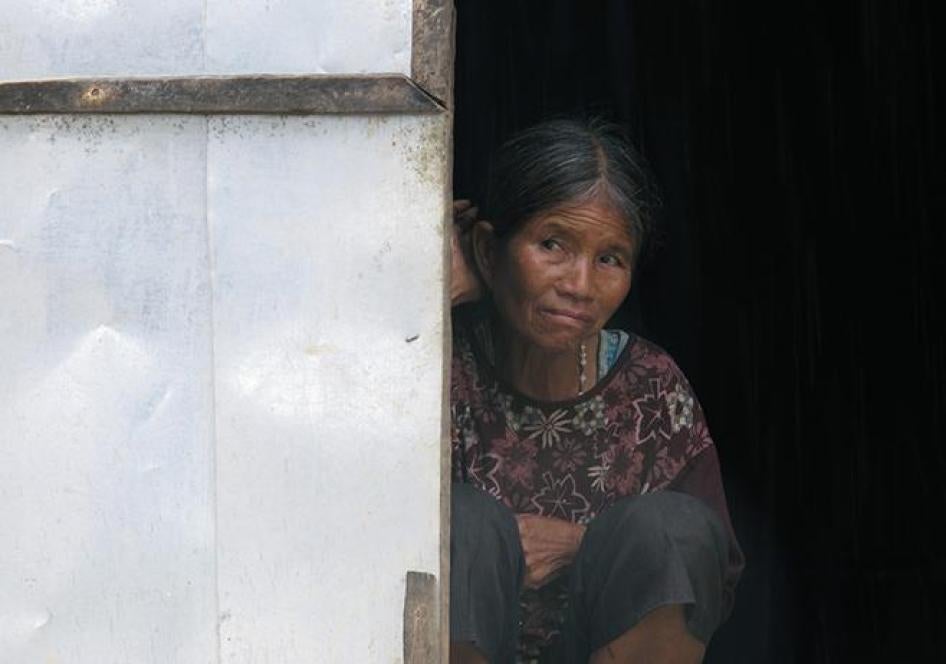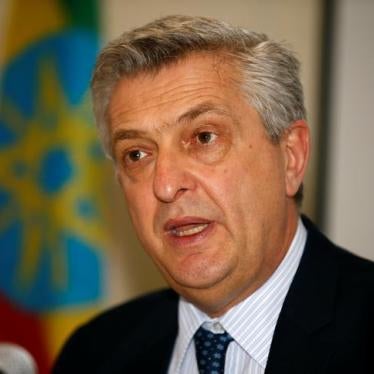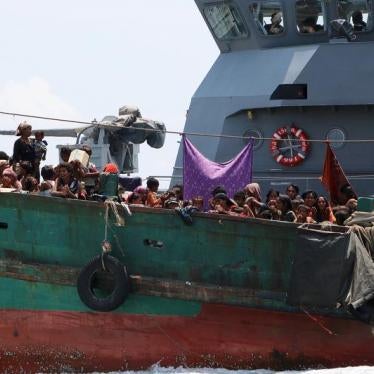(Bangkok) – Thai authorities should immediately release 181 ethnic minority refugees and asylum seekers, most with UN refugee status, who were recently arrested, Human Rights Watch said today. Those detained come mostly from the Montagnard population in Vietnam and Cambodia and were arrested on August 28, 2018, on the outskirts of Bangkok.
“Thailand’s frequent claims about improving refugee rights ring hollow when officials detain dozens of families who are protected under the mandate of the UN refugee agency,” said Brad Adams, Asia director. “These Montagnards face harsh persecution if they are returned to Cambodia and Vietnam, which Thailand should not do under any circumstances.”
In the early morning of August 28, the district chief of Bang Yai district led a team of Ministry of Interior security officers (Or Sor), police, immigration police, and army soldiers to arrest 181 Vietnamese and Cambodian refugees and asylum seekers, including over 50 children, at their homes in Nonthaburi province. Officials claimed they were responding to complaints filed by local Thai residents.
Many Montagnards have fled Vietnam to Cambodia and Thailand in recent years to escape religious and political persecution. Cambodia’s ethnic Jarai population, many of whom are Christian, have faced land confiscation and intensifying government pressure after Vietnamese Jarai fled into Cambodia’s Ratanakiri province.
The arresting officers appeared to have little understanding about Thailand’s obligations to protect refugees. One refugee said: “Many people [officials] come to me to ask why I came here, how I came here, and how much I paid. They asked who helped me to get the [UN refugee agency] card and how much I paid to get the card. Many people were asked about our journey to Thailand … A Thai person [plainclothes officer] said we are here illegally, and we have to comply with the law."
Officers transferred the refugees and asylum seekers to the Bang Yai district office and charged them with illegal entry or illegal stay under articles 11, 62, and 81 of Thailand’s Immigration Act. Representatives from the Thailand office of the United Nations High Commissioner for Refugees (UNHCR) traveled to Bang Yai district office to seek the release of all “persons of concern” recognized by UNHCR but were unsuccessful.
Interior Ministry officials at the Bang Yai district office questioned refugees, lawyers, and refugee agency officers about the authenticity of their UNHCR cards. The officers showed little knowledge about refugees, their status, or Thai government obligations to protect refugees and asylum seekers, and asked how those arrested could claim they were refugees when there was no war in their home country.
On the evening of August 28, the Thai government sent 34 refugees and asylum seekers with Cambodian nationality to Bangkok’s Suan Phlu Immigration Detention Center to await possible deportation. Thai officials took 38 refugees from Vietnam to the Nonthaburi provincial court on August 29 to hear charges against them, but the proceedings were hampered by the failure of the Thai authorities to ensure the presence of a proper Jarai language interpreter to enable the refugees to understand both the charges against them and the court proceedings.
“Prosecuting these refugees and asylum seekers for illegal entry misunderstands their reason for coming to Thailand,” Adams said. “And it raises major concerns they may be sent back to persecution.”
Thailand indefinitely detains refugees and asylum seekers in squalid conditions pending deportation. The UN Working Group on Arbitrary Detention requires asylum seekers to be “brought promptly before a judge or other authority” to assess the legal basis for their detention.
Thailand is legally bound to respect the international law principle of non-refoulement, which prohibits states from returning individuals to a country where they may face torture or other serious human rights violations. Non-refoulement is explicitly prescribed by article 3 of the UN Convention against Torture, to which Thailand is a party, and is considered part of customary international law.
In 2016, Thailand announced its commitment to end the immigration detention of children. In January 2017, the Royal Thai Government issued a cabinet resolution that supports passage of a law that would set up a national screening mechanism for asylum seekers.
The Convention on the Rights of the Child, which Thailand ratified in 1992, requires that “the arrest, detention, or imprisonment of a child shall be in conformity with the law and shall be used only as a measure of last resort and for the shortest appropriate period of time.” The convention also requires “a child who is seeking refugee status or who is considered a refugee in accordance with applicable international or domestic law and procedures shall, whether unaccompanied or accompanied by his or her parents or by any other person, receive appropriate protection and humanitarian assistance in the enjoyment of applicable rights set forth in the present Convention and in other international human rights ... instruments.”
“Thailand is violating its international commitments by detaining over 50 children of refugees and asylum seekers,” Adams said. “Their UN refugee status should ensure that none of these families are detained. Thai authorities should release them immediately.”









